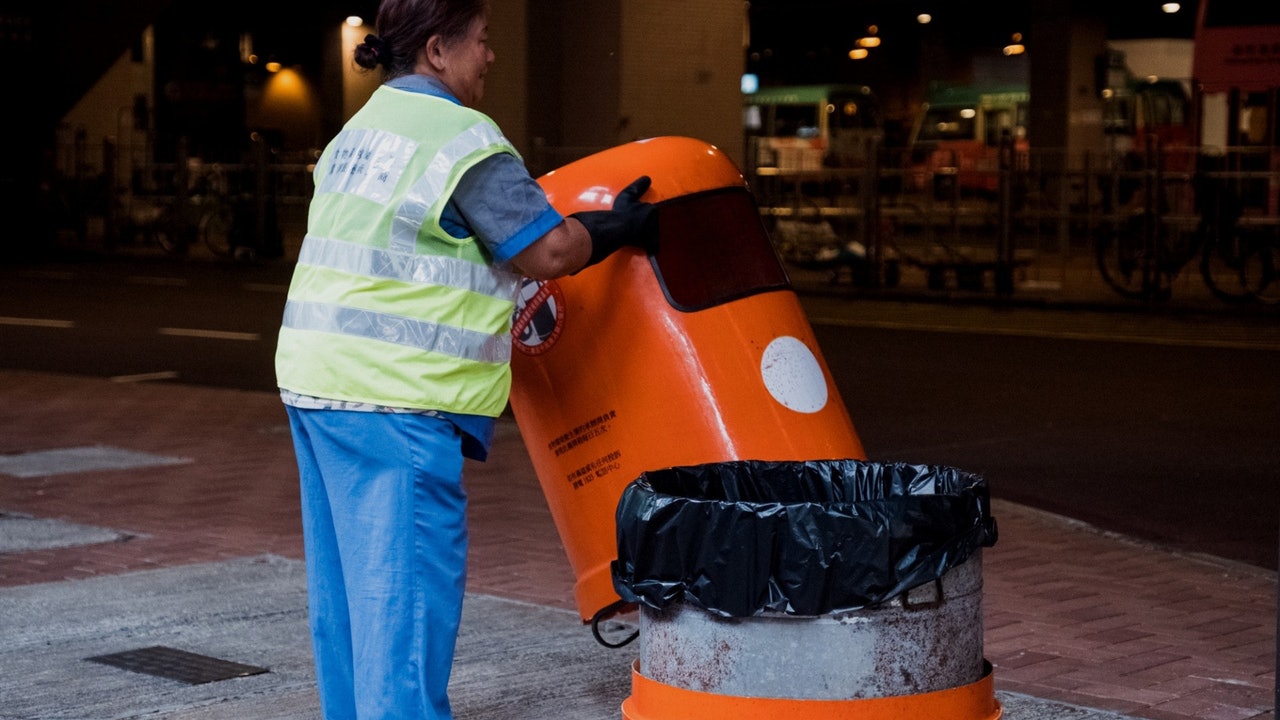01 perspective
Written by: Comment Editor
2020-02-25 07:30
Last updated: 2020-02-25 07:30New-type coronavirus pneumonia is raging. Although the Hong Kong Government has urged the public to reduce going out, but for occupations that must be away from work, working from home is not a viable option. The remaining problem is how to give them the protection they need to work. The Director of the Centre for Infection and Infectious Diseases of the University of Hong Kong, He Boliang, sent a letter to the Chairman of the Hospital Authority, Fan Hongling, on Monday (24th) to request that new pneumonia be included as an occupational disease to ensure that employees who are unfortunately infected can be protected by law and receive due compensation. Looking back at SARS, the Hong Kong government waited for the epidemic to pass, and later realized that the new virus was classified as an occupational disease. It was a slow response. Therefore, this time the Hong Kong government should learn a lesson and publish constitutional legislation as soon as possible to prevent it before it can be given. Reasonable job security for hard-working frontline medical staff and cleaners.
For occupations that must be out on duty, the challenge is how to give them the job security they deserve. (Profile picture / Photo by Yu Junliang)
According to the definition of the International Labour Organization (ILO), occupational diseases refer to diseases that have a clear or strong relationship with occupations, and usually involve only a single cause of the disease. At present, the laws related to occupational diseases in Hong Kong can be found in the 52 types of occupational diseases listed in the Employees' Compensation Ordinance, the Occupational Deafness (Compensation) Ordinance and the Pneumoconiosis and Mesothelioma (Compensation) Ordinance. Have occupational hearing loss, tenosynovitis of the hand or forearm, and silicosis.
Comprehensive protection against epidemic diseases
Although new pneumonia is an infectious disease, which may at first seem to be incompatible with the concept of occupational disease, the Hong Kong Government has also previously included SARS and Avian Influenza in occupational diseases. During SARS in 2003, more than 400 staff of the Hospital Authority were infected. In order to reduce the difficulty of proof of "infection due to work", the Hong Kong Government proposed in 2004 to classify the two infectious diseases as occupational diseases in order to speed up the compensation process. . Looking at the main arguments of the Hong Kong Government that year, that "the disease poses a significant and recognized risk to workers engaged in certain industries in Hong Kong", and that "in each case, it is reasonable to presume or determine that the disease is related to a certain occupation", The rationale for rationalizing the inclusion of SARS in occupational diseases also applies to the current public health crisis.
Although workers infected with new pneumonia can still enjoy the right to recover "non-occupational diseases" in the Employees' Compensation Ordinance, since new pneumonia is not an occupational disease designated by the authorities, if employees are unfortunately infected at work, they must Provide evidence for becoming infected while working. However, this approach presupposes that the employee's illness and work relationship must be proven by the claimant. Not only the frontline employees may not be able to find the source of the illness, the lengthy administrative procedures and the numerous documents required for the claim have added patients. Difficulty of employees' claims. Conversely, if the Hong Kong government actively defines new pneumonia as an occupational disease, it will be exempt from the requirement for proof of affected employees, unless there is evidence that the infection is not related to work, and employees will also be protected. This will not only speed up the claim process, but also provide a more comprehensive "anti-epidemic work guarantee" immediately.
However, even though the community has reached a consensus on the amendment of the legislation, the Hong Kong Government still comes up with "the law cannot be amended until the theory of medicine and epidemiology is clear", saying that it must not be the urgency of the people. For frontline personnel such as medical care and cleaning, the Hong Kong Government provides a full range of protective equipment is a more urgent and targeted countermeasure. However, due to the global rush to purchase protective equipment and materials, the Hong Kong government has a lot of constraints in reality, and it is difficult to find enough to meet demand in the short term. At this time, the government needs to step outside the existing policy framework and try its best to fill other policy loopholes so that frontline personnel who take risks to fight the epidemic can work at ease.
Even if the revision of occupational diseases is an ex post compensation measure, it is not only an indispensable occupational guarantee for the workers in the medical and nursing professions, disciplined services, and laboratory personnel who are often in a high-risk environment, but also for the Hong Kong government. The litmus test of epidemic prevention policy and efficiency.
[Wuhan pneumonia] Citizens forced to go to work without cover
Working from home, shopping online, and learning online-new type of pneumonia "accidentally" changes lives
01 depth
Wuhan Pneumonia Labor Security Labor Department 01 Views

